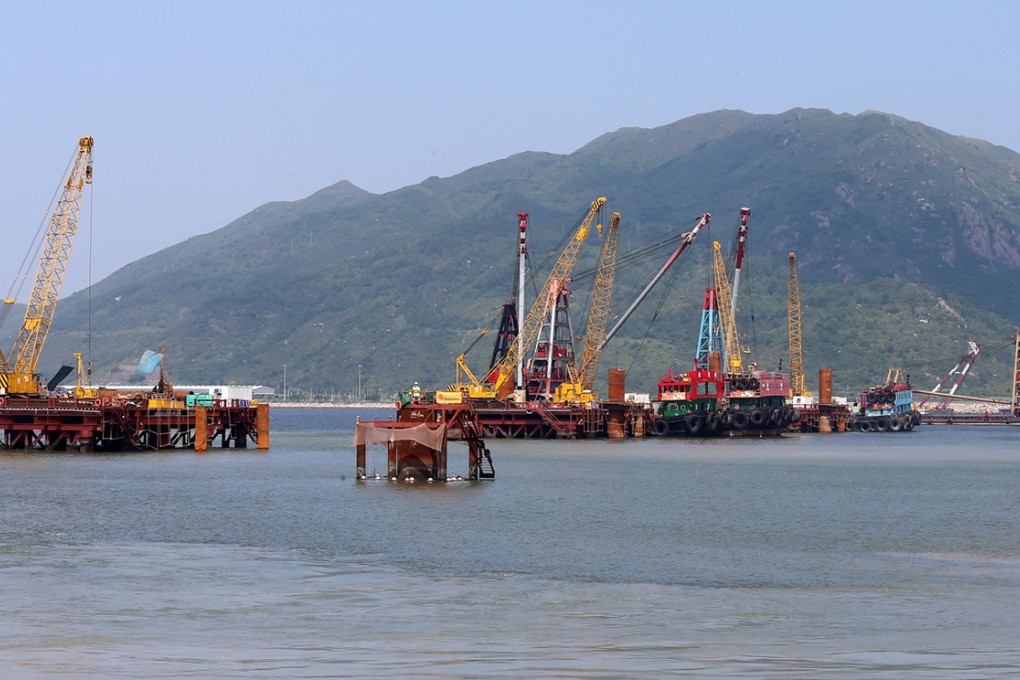Despite higher costs, keep Hong Kong-Zhuhai-Macau bridge on track
Cost overruns on major infrastructure projects are routine, no matter where in the world they are being built. Wage rises, difficulty with design and implementation, and legislative indecision are among reasons often cited for increases.

Cost overruns on major infrastructure projects are routine, no matter where in the world they are being built. Wage rises, difficulty with design and implementation, and legislative indecision are among reasons often cited for increases. It was therefore inevitable, given the economic climate and labour environment, that the government would seek extra funding for an artificial island being developed as part of the bridge linking Hong Kong with Zhuhai and Macau. Delaying approval will only mean higher costs.
The scale and landmark nature of the 50km bridge being built by Hong Kong, Guangdong province and Macau has diverted attention from the island project off north Lantau. Yet reclamation work and construction of facilities linked to the bridge makes it four times more expensive. Hong Kong's section of the bridge will be about one-tenth of the HK$87 billion total; the cost of the island will balloon to HK$35 billion should a request by the Transport and Housing Bureau for a further HK$5 billion be supported by lawmakers. Higher wages for construction workers and higher prices for machinery and materials were blamed for the rise.
Authorities have stressed that the increase is an estimate and that a more precise figure will be calculated before legislators are asked to back the request. That is to be expected given that another high-profile project, the high-speed railway line to Shenzhen, will now require at least HK$5.1 billion more than the previously approved HK$66 billion. More funding requests are likely from delays in construction of new MTR lines and an even bigger-ticket item, a third airport runway, looms. Lawmakers have every right to ask questions about contracts awarded, completed and still outstanding and to wonder about the accuracy of completion dates and figures.
The political environment does not augur well. Pan-democrat legislators are at loggerheads with the government over political reform and filibustering has become a common tactic by those opposing projects. The obvious downside to such behaviour is delayed completion dates and higher costs.
The projected opening date for the bridge is 2016, by which time immigration and customs facilities, parking areas and other infrastructure on the 130-hectare island should also be ready. The Development Bureau is looking into ways of utilising still-unallocated land. It is in all of Hong Kong's interest that the project stays firmly on track.